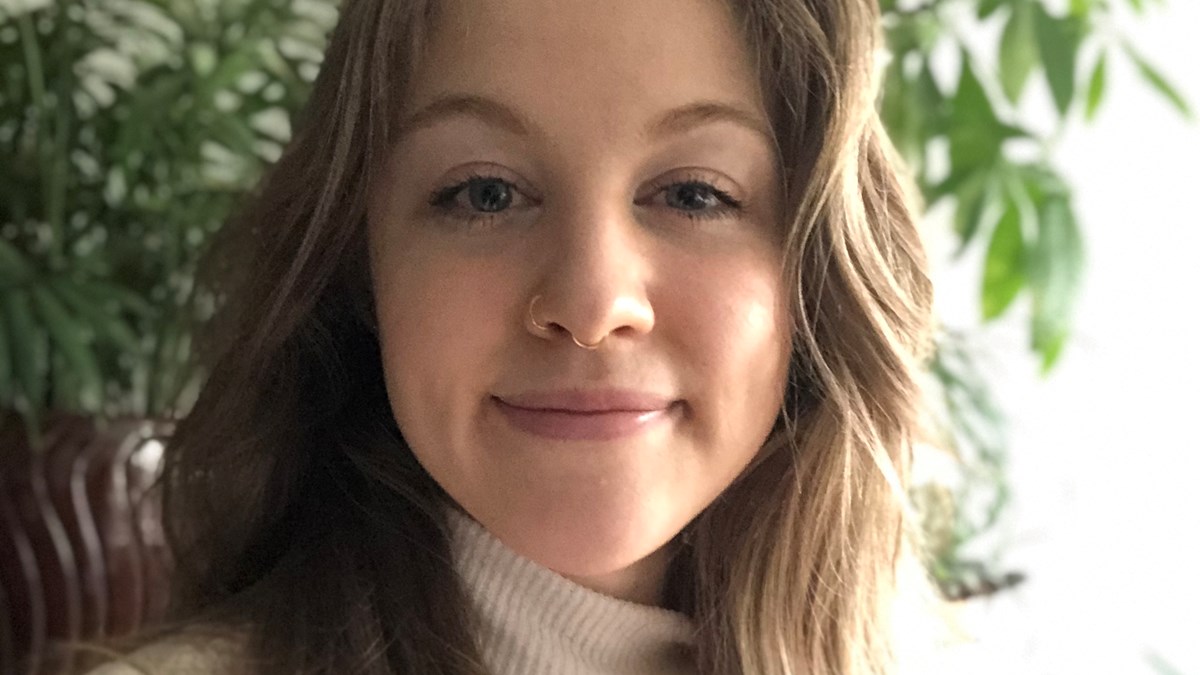Sophia Kenney

“IMMB was an excellent program that prepared me well. It provided exposure to a variety of laboratory skills, opportunity for undergraduate research contributions, and different skills important for conducting more independent research.”
Tell us more about your current academic experience. How does it relate to your graduate studies at WVU? What skillsets are you utilizing from what you learned?
I am currently a second year PhD student at Pennsylvania State University and a graduate research assistant in the research group of Dr. Erika Ganda. My primary research interests involve multi-drug and antimicrobial resistance of pathogens from a One Health framework. My studies in IMMB directly relate as they provided foundational knowledge in bacterial pathogenesis and microbial genetics. Throughout my undergraduate experience, I gained many skills that I still use regularly. Bacterial culture techniques, molecular genetics, and BSL2 research are just a few. Additionally, I feel the grant writing exercise of our thesis project was incredibly helpful in writing my first, and since funded, research grant.
What are your favorite/most challenging aspects of your PhD program?
A major focus of my graduate training has been learning the bioinformatic skills necessary to draw meaningful conclusions from genomic data. The learning curve was steep since I had minimal exposure to this area prior to joining the Ganda lab. Learning all of the tools to perform microbiome analysis as well as analyses involving antimicrobial resistance biosurveillance has been extremely rewarding. Additionally, Dr. Ganda is an outstanding mentor who has created a lab culture that is, for me, an ideal blend of collaborative, challenging, and supportive.
Why did you choose to attend WVU for your undergraduate education, and particularly the IMMB program? What would you tell prospective students interested in IMMB about your experience at WVU, and particularly the School of Medicine?
When I was in high school I knew I wanted to do something related to microbiology. Interacting with faculty and students at that time solidified my decision to choose IMMB. Additionally, from a financial standpoint the Promise and Presidential Scholarships are great resources for West Virginia residents and made WVU an even better fit. For someone interested in pursuing a research degree, IMMB was an excellent program that prepared me well. It provided exposure to a variety of laboratory skills, opportunity for undergraduate research contributions, and different skills important for conducting more independent research. The WVU School of Medicine has numerous research opportunities. If you think research is something you might like to do, there are so many amazing faculty and students in the IMMB program that would provide great exposure to what it is like to conduct research.
Have you worked with any faculty or staff members who have an impact on you while at WVU?
I was awarded one of the research internships led by the IMMB program. This allowed me to make a meaningful contribution to the research Dr. Candice Brown’s group conducted. During this experience, two mentors that had a tremendous impact on me were Dr. Duaa Dakhlallah, who helped me with a project while I was completing the internship, and Jesse Hall, who, at the time, was a PhD student in Dr. Damron’s lab. The intention with which they conducted their research as well as their mentoring styles have informed my approaches to both.
You were awarded the NIH T32 Fellowship. Congratulations! Can you please tell us more about the program?
This fellowship provides two years of support in areas of computation, bioinformatics, and statistics. Additionally, it provides focused training in scientific rigor, research ethics, scientific communication, and opportunities for professional development. As I mentioned, gaining these analytic skills is a major goal of my graduate training. Being appointed to this fellowship provides me with a great opportunity to continue advancing these skills.
You also are working with a USDA NE-SARE Graduate Student Grant opportunity.
Yes, this is a graduate student research grant. My project focuses on investigating the prevalence of Salmonella Dublin, a bovine-adapted, multi-drug and highly antimicrobial resistant pathogen. This combined with its unique etiology and environmental persistence make it a threat to the sustainability of the dairy industry. Although PA is seventh nationally in dairy production, no study has been conducted to determine its prevalence in the state. The objectives of my project are to estimate its seroprevalence, confirm its active presence on seropositive farms via isolation from environmental samples, and to isolate candidate bacteriophages against it as a potential therapeutic alternative to antibiotic intervention.
With all of these incredible research experiences under your belt, what do you currently intend to pursue as a career? Is there an experience you’ve had that made you realize why you chose this profession or specialization? What makes you excited about pursuing this field?
I am currently interested in pursuing a career as a research scientist within a government agency such as the FDA, USDA, or CDC. The emergence and increasing incidence of antimicrobial resistant pathogens have implications across all of these sectors. The skills I obtained in my undergrad combined with those I am gaining now are directly translatable to various aspects of public health under these agency’s purview. Antimicrobial resistance is a global health concern, impacting human, animal, and environmental health. Conducting research from the standpoint of biosurveillance and risk mitigation is an opportunity to provide data driven directions for tackling this problem.